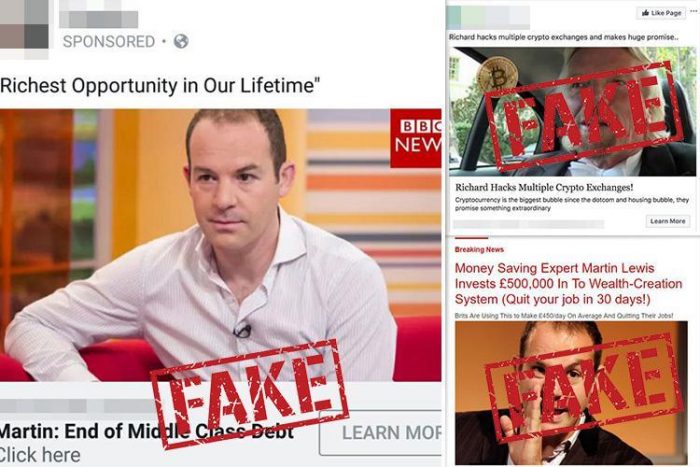
Defamation Suit Filed Against Facebook Over Fake Ads
- Facebook is being sued in the UK for defamation by consumer advice personality Martin Lewis.
- He claims that his face and name have been used in fake advertisements on the social media website repeatedly.
- Lewis filed a lawsuit because he claims despite complaints and action, the ads were not removed from the website.
Martin Lewis, a consumer advice personality has sued Facebook for defamation over supposedly fake ads featuring him repeatedly. Martin claims that he filed a complaint about the ads to be taken down and despite repeated complaints and action being taken by him, the social media website did not respond.
Lewis is the founder of popular website MoneySavingExpert.com and believes the ads are tarnishing his reputation since they are targeted to vulnerable users who can be lured to costly scams. He reported the ads to be consistent and repetitive. Martin said in a blog post “What is particularly pernicious about Facebook is that it says the onus is on me, so I have spent time and effort and stress repeatedly to have them taken down”.
Image Courtesy of The Sun
He added, “It is facilitating scams on a constant basis in a morally repugnant way. If Mark Zuckerberg wants to be the champion of moral causes, then he needs to stop its company doing this.” Lewis believes it should not be difficult for Facebook to prevent scammers from misappropriating someone’s image despite being one of the leaders in face and text recognition.
According to TechCrunch, Lewis has been fighting for over a year to remove the ads but has found no solution yet. The scam ads include fake news articles that lead to cryptocurrency-based scams. There have been reports of victims who have fallen for the fake ads as well. One of the most notable examples includes a lady who had over £100,000 taken from her. The lawsuit by Lewis is a personal action seeking exemplary charges and does not seek to make profits. Lewis wants to donate any profits he may make to combat fraud.
It appears that the social media platform does nothing at all to verify the websites to which ads the platform is directing its users and steps in only when nudity is involved. In other cases, it simply does not filter fake news or illegal content that may lead to innocent people being scammed. Facebook is already in the middle of the Cambridge Analytica scandal and is facing the heat from lawmakers from Europe and the US over its privacy policies.








